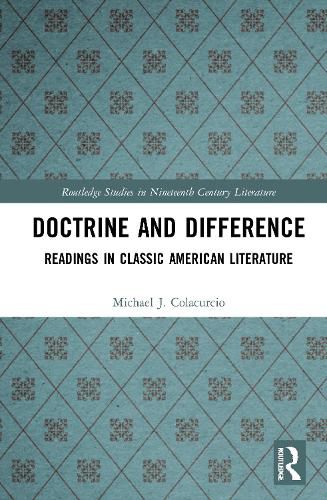Readings Newsletter
Become a Readings Member to make your shopping experience even easier.
Sign in or sign up for free!
You’re not far away from qualifying for FREE standard shipping within Australia
You’ve qualified for FREE standard shipping within Australia
The cart is loading…






Doctrine and Difference: Readings in Classic American Literature aims to expand and deepen the inquiry begun in the volume from 2007. Beginning with an essay on the avowedly Puritan poetry of Anne Bradstreet and ending with two not-quite-secular novels from late in the 19th century, this volume seeks to uncover the religious and philosophical meanings deeply embedded in so much of 19th century American literature, and then, importantly, to identify and analyze the techniques by which the doctrines are differentiated into imaginative literature. Poe, Emerson, Thoreau, Hawthorne, Melville-and yes, even Howells and James-are driven by powerful thematic intentions. But they do not preach: they dramatize. And, as they talk their way through their existential issues, they often talk to one another: yes, no, maybe, ok but not so fast. Stressing the idea of a shared, poet-Puritan inheritance, the new Doctrine and Difference means to re-confirm the vitality of literary history and, in particular, the importance of reading the classic texts of American literature in context and in relation.
$9.00 standard shipping within Australia
FREE standard shipping within Australia for orders over $100.00
Express & International shipping calculated at checkout
Doctrine and Difference: Readings in Classic American Literature aims to expand and deepen the inquiry begun in the volume from 2007. Beginning with an essay on the avowedly Puritan poetry of Anne Bradstreet and ending with two not-quite-secular novels from late in the 19th century, this volume seeks to uncover the religious and philosophical meanings deeply embedded in so much of 19th century American literature, and then, importantly, to identify and analyze the techniques by which the doctrines are differentiated into imaginative literature. Poe, Emerson, Thoreau, Hawthorne, Melville-and yes, even Howells and James-are driven by powerful thematic intentions. But they do not preach: they dramatize. And, as they talk their way through their existential issues, they often talk to one another: yes, no, maybe, ok but not so fast. Stressing the idea of a shared, poet-Puritan inheritance, the new Doctrine and Difference means to re-confirm the vitality of literary history and, in particular, the importance of reading the classic texts of American literature in context and in relation.